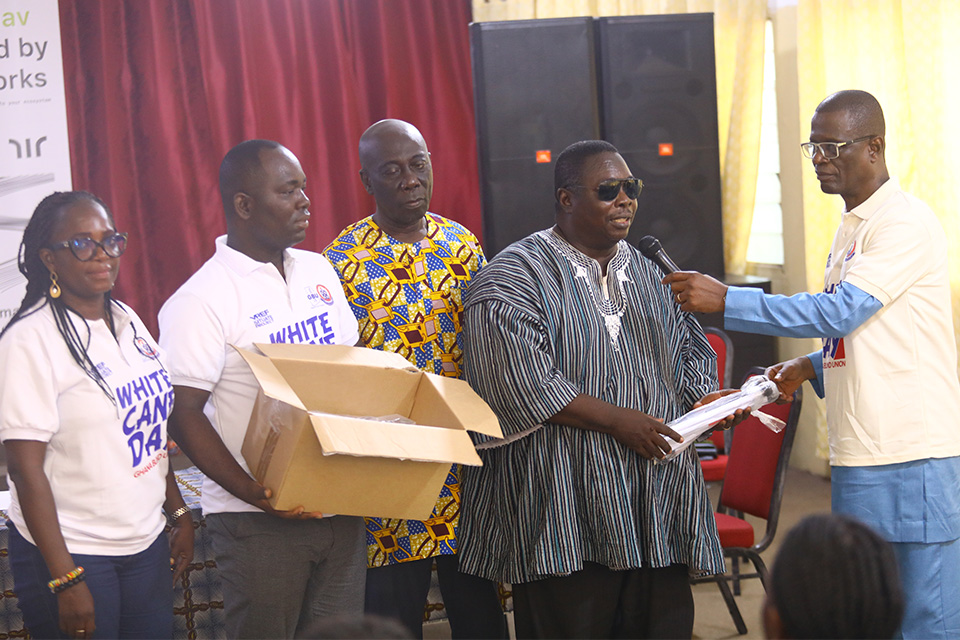UEW SITUATE-2 Team Collaborates with GBU to Celebrate White Cane Day

A team of researchers from the University of Education, Winneba (UEW), spearheading the SITUATE-2 project, has teamed up with the Ghana Blind Union (GBU) to commemorate the 2023 International White Cane Safety Day at the Accra Rehabilitation Centre.
This annual event, also known as World Sight Day, is aimed at raising public awareness about the significance of the white cane as a crucial tool that empowers blind individuals to achieve independence, safety, and autonomy in navigation. The celebration aligns with the overarching objectives of the SITUATE-2 project, which seeks to eliminate barriers in urban transportation for people with disabilities.

Dr. Peter Obeng-Asamoa, the Executive Director of GBU, emphasised the significance of observing International White Cane Safety Day within the framework of his organisation. He provided historical context surrounding the origin and global recognition of the white cane and introduced participants to innovative technologies that complement the white cane for navigation.
He explained, "The white cane, initially a mobility aid, has a rich history. Its conspicuous white colour makes it instantly recognisable and has become an emblem of the visually impaired. This indispensable tool not only enables us to move independently but also symbolises our independence as blind people. Independence is the cornerstone of self-reliance, enabling us to make meaningful contributions and earn respect within our society."

Dr. Obeng-Asamoa also underscored the pivotal role of the white cane in breaking down not only physical barriers but also societal ones. These barriers encompass negative attitudes, misconceptions about blindness, overprotectiveness, and limited opportunities. He urged society to eliminate these non-physical barriers, enabling visually impaired individuals to pursue personal and communal development.
Furthermore, Dr. Obeng-Asamoa made an impassioned appeal to the Ghanaian public, stakeholders, and the government to work towards providing white canes for all citizens who are visually impaired. He pointed out the challenges associated with the cost and importation of white canes and highlighted the prevalence of visual disabilities, especially in rural areas. He also hinted at the introduction of a new technology meant to complement, not replace, the white cane.

Prof. Enoch Sam, the leader of the SITUATE-2 project, provided an overview of the project's objectives, emphasising the team's commitment to ensuring independent and unrestricted mobility for all, regardless of physical abilities, within Ghana's transportation system.

Prof. Samuel Hayford, a distinguished Professor of Special Education at UEW and a member of the team, generously donated 20 white canes on behalf of the SITUATE-2 project team to GBU. He stressed the importance of visually impaired individuals using white canes for independent movement and maintaining their dignity. Prof. Hayford urged them not to deny their visual impairments and even suggested exploring methods used in Western countries, such as guide animals, if they were hesitant to use white canes. He noted, "By continuing our education and cooperation, we can overcome these challenges."

Prof. Esther Yeboah Danso-Wiredu, the Director of the Directorate of Research, Innovation, and Development (DRID), who was also present as a member of the SITUATE-2 project team, emphasised the project's commitment to inclusive and accessible urban transportation.









